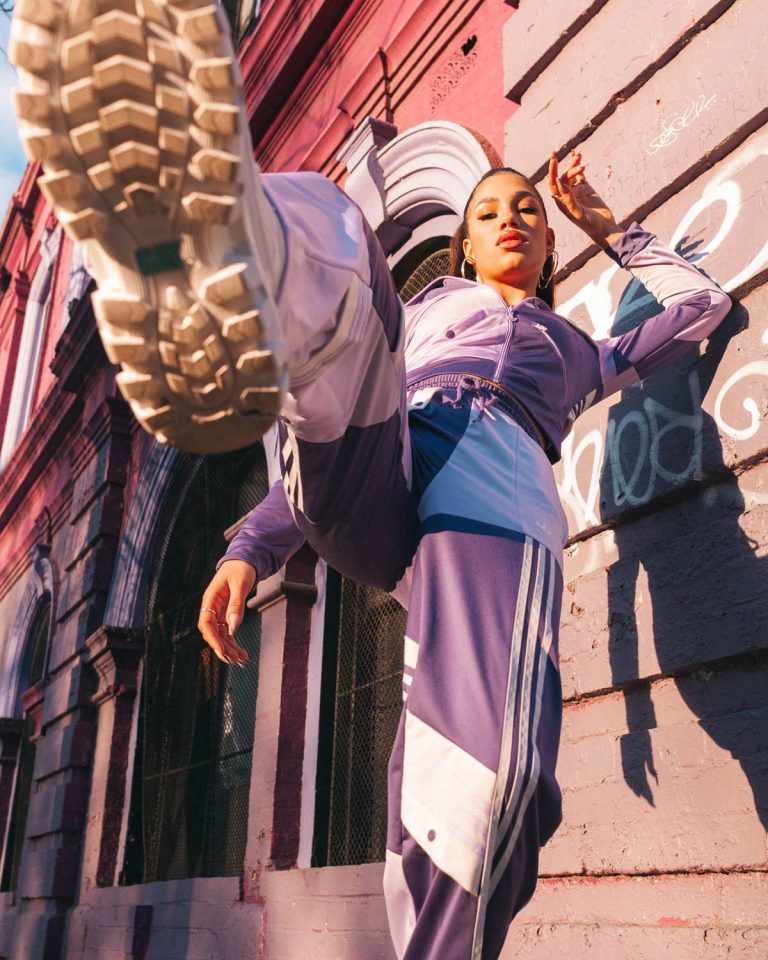
Opinion
What did fast fashion brands do during COVID-19?
By Aisha Taras
Opinion
What did fast fashion brands do during COVID-19?
By Aisha Taras
Published Sep 3, 2020 at 12:30 PM
Reading time: 3 minutes
Fashion
Sep 3, 2020
Why can an entire outfit, from shoes to hairband, cost less than a dinner out? Because, while the people making your food are being paid minimum wage, the ones making your clothes simply aren’t.
As the UK goes into recession, the COVID-19 pandemic is starkly highlighting how the poorest are the worst affected by economic inequality. Slowly, we’re being faced with an uncomfortable truth; that the clothes on our backs are made by the blood, sweat, and tears of underpaid or slave workers. So, how exactly do we solve that? What is the alternative to fast fashion, and are people willing to change their bad habits?
‘Fast fashion’ is the name given to clothing that is produced cheaply and quickly, and only made to last a few wears. To make sure the costs stay low, products are often made in sweatshops, sometimes even using slave labour. Words like ‘factory-made’ dissociate us from the fact that the clothing in factories are actually handmade and in unethical circumstances. This phenomenon doesn’t just take place overseas; recently, Boohoo was shown to be getting its clothes from a factory in Leicester where workers were paid £3.50 a day.
The #PayUp movement that began earlier during the lockdown saw activists call out major retailers like Asda, Primark, and Zara, who had cancelled orders worth $2.8 billion from Bangladeshi factories. Some refused to pay for the cancelled stock, while others forced factory owners to accept ludicrous discounts. This left 4.1 million factory workers at risk of starvation and homelessness. Under pressure, some brands such as Primark and Levi’s issued vague statements but so far, no real accountability has been seen. At the same time, brands such as Nike, Adidas and Apple were discovered to be sourcing clothing from factories using enslaved Uyghurs, a marginalised ethnic group at risk of genocide. Do you still think fast fashion is not an important issue?
Besides being a major human rights issue, fast fashion is also detrimental to the environment. According to the World Resources Institute, a single cotton t-shirt needs 2700 litres of water to be made, which is enough for one person to drink daily for two and a half years. Furthermore, clothing that is tossed into landfills after just a few uses may stay there for up to 200 years before it decomposes. The fashion industry also releases 8 per cent of the world’s total carbon emissions, which is more than the airline industry. Still not convinced?
Our expectation of having access to cheap clothing also carries racist and sexist implications. Clothing brands purposely contract orders from countries such as Bangladesh, Vietnam, and Pakistan, countries still struggling with the after-effects of colonialism and resource exploitation. Not only does poverty give the workers no choice but to accept low wages, but the lack of sociopolitical security also prevents them from challenging their employers!
This allows corporations to use marginalised people of colour for cheap labour while evading accountability. Women make up the majority of the garment labour workforce, where they face sexism regularly. A report published by Global Labour Justice revealed accounts of physical, mental and sexual abuse faced by female workers in a factory producing clothing for Gap.
So how can we change our consumer habits? Besides supporting ethical brands, a great way to get the clothes you want is to buy them second-hand. In my exploration of ethical consumption choices, I came across Depop. For those of you who have been living under a rock, Depop is an app with an Instagram-like interface allowing users to buy and sell pre-loved clothing and accessories, bringing traditional thrifting to smartphones.
Users can upload pictures of items they want to sell, and post them on their virtual shop with information such as size, brand, condition, and their chosen price. Buyers can ‘like’ posts, save them to collections, or message the seller privately to negotiate prices, as many sellers are willing to consider offers or bundle discounts. To protect users from scams, purchases are made in-app and are covered by buyer protection.
Cost isn’t the only reason Depop is such a great option. Buying clothing already in the consumer’s hands not only keeps them out of the landfill but also decreases the demand for production from high-street retailers. It divests your hard-earned money away from corporations and instead gives it directly to individuals, helping them pay their own bills and refunding some of the money they spent.
I spoke to a group of Depop users to gain a better understanding of how exactly the app can support ethical consumption. Olivia from Sheffield buys and sells on her shop, and says that she’s made up to £200 during the three months she’s been active. Caitlin, from Nottinghamshire, has stopped supporting fast fashion brands and has instead been buying and selling on her shop for about two years, which proved to be lucrative enough to become her part-time job. Hafsah from London and Kate from Hereford have both seen their consumption from fast fashion retailers go down, and have saved up to £100, while other users said that they rarely buy from high street retailers anymore.
All in all, yes, services such as Depop are not a perfect solution, since they still rely on the existence of fast fashion in the first place. However, buying pre-loved items is a great short-term solution to reducing your fast fashion consumption, keeping clothing out of landfills, and diverting your money away from unethical corporations and back towards people like you. Depop is the first step towards change—now, what’s next?




